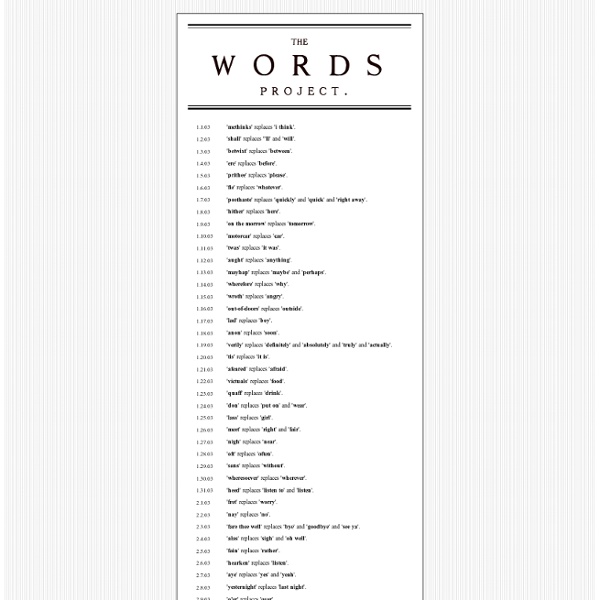



random words 100 Whimsical Words by Mark Nichol The English language can be maddening to native speakers and learners alike, but is also delightfully rich, especially for those who seek to convey a lighthearted tone in their writing. Here are 100 words it’s difficult to employ without smiling. Though their meanings may be obscure, they each present a challenge — I mean an opportunity — for you to paint a vivid word picture. Imbue your musings with mirth by incorporating these terms: 100 Mostly Small But Expressive Interjections David Bier Thanks for this – what a fun post considering there’s no actual narrative in it! Cecily Some of these interjections are quite culturally and age specific, so if people need to be told what they mean, they should probably not be using them.For example, to many Brits, va-va-voom is not old-fashioned at all, but instead is firmly linked to the long-running ads that footballer Thierry Henry made for the Renault Clio. Himanshu Chanda Whoa ! What a biiiig list. And yes this ones really great.
Types of Reasoning Disciplines > Argument > Types of Reasoning Reasoning within an argument gives the rationale behind why one choice, for example should be selected over another. Types of reasoning include: Abduction: the process of creating explanatory hypotheses. Backwards Reasoning: Start from what you want and work back. Note that these are not all mutually exclusive methods and several give different lenses onto overlapping areas. Fallacies, Syllogisms, Decisions
45 ways to avoid using the word 'very' Writers Write is your one-stop resource for writers. Use these 45 ways to avoid using the word ‘very’ to improve your writing. Good writers avoid peppering their writing with qualifiers like ‘very’ and ‘really’. They are known as padding or filler words and generally add little to your writing. According to Collins Dictionary: ‘Padding is unnecessary words or information used to make a piece of writing or a speech longer. Synonyms include: waffle, hot air, verbiage, wordiness.’ Adding modifiers, qualifiers, and unnecessary adverbs and adjectives, weakens your writing. This post gives you 45 ways to avoid using the padding word ‘very’. Three Telling Quotes About ‘Very’ “Substitute ‘damn’ every time you’re inclined to write ‘very;’ your editor will delete it and the writing will be just as it should be. If you enjoyed this, you will love: Top Tip: If you want to learn how to write a book, sign up for our online course. by Amanda Patterson © Amanda Patterson
CALLIHOO Writing Helps--Feelings Table Character Feelings You can describe your character's feelings in more exact terms than just "happy" or "sad." Check these lists for the exact nuance to describe your character's intensity of feelings. SF Characters | SF Items | SF Descriptors | SF Places | SF EventsSF Jobs/Occupations | Random Emotions | Emotions List | Intensity of Feelings justenglish Amazing — incredible, unbelievable, improbable, fabulous, wonderful, fantastic, astonishing, astounding, extraordinary Anger — enrage, infuriate, arouse, nettle, exasperate, inflame, madden Angry — mad, furious, enraged, excited, wrathful, indignant, exasperated, aroused, inflamed Answer — reply, respond, retort, acknowledge Ask– — question, inquire of, seek information from, put a question to, demand, request, expect, inquire, query, interrogate, examine, quiz Awful — dreadful, terrible, abominable, bad, poor, unpleasant Beautiful — pretty, lovely, handsome, attractive, gorgeous, dazzling, splendid, magnificent, comely, fair, ravishing, graceful, elegant, fine, exquisite, aesthetic, pleasing, shapely, delicate, stunning, glorious, heavenly, resplendent, radiant, glowing, blooming, sparkling Begin — start, open, launch, initiate, commence, inaugurate, originate Break — fracture, rupture, shatter, smash, wreck, crash, demolish, atomize Come — approach, advance, near, arrive, reach Read on: Related
Randomly Awesome Words